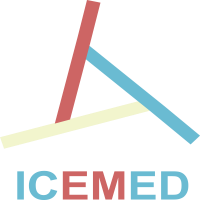
Speakers

Prof. Noor Azizi Ismail
Universiti Malaysia Kelantan, Malaysia
Research Area:Accounting,Information System, Accounting Information Systems, Entrepreneurship
Brief: Professor Azizi is a professor of accounting information systems. He is an accomplished academician with track records in teaching, research, publication and consultation. He is passionate about IT, innovation and entrepreneurship.
Professor Azizi is a strong advocate for good governance in higher education. He has a vast experience in academic administration having held various administrative roles including Dean of Othman Yeop Abdullah Graduate School of Business, Deputy Vice Chancellor (Research and Innovation) at Universiti Utara Malaysia (UUM) and Vice Chancellor of Universiti Malaysia Kelantan (UMK) until end of 2021. He was also the Deputy Director of Higher Education at the Malaysian Ministry of Higher Education.
Professor Azizi is known as a ‘go-getter’ transformational leader. He has received several accolades such as the prestigious Movers & Shakers Award by The Asia HRD Awards and Innovation Leadership Award. The educative contents he shared on LinkedIn earned him the professional network's prestigious Top Voice in Asia Awards in 2019.
Title of Keynote Speech:
Talent, Technology and Innovation: Potential and Reality
Abstract:
The rapid advancements in technology, such as big data and artificial intelligence, and the increasing demand for innovation have led to a significant shift in the nature of work and the skills required in the workplace. Thus, organisations are seeking out talented individuals who possess the knowledge and skills necessary to leverage technology and drive innovation. Despite the potential, technology also presented new challenges. The pace of change is very rapid, and organisations must continuously adapt to remain competitive. That requires strong leadership with good governance, beyond talent and technology. Thus, this presentation will provide an overview of the potential of technology to drive innovation and some reality checks on the ground. It will also touch on the role of universities in pushing for the nation’s innovation-driven economic growth. In conclusion, talent, technology, and innovation are intertwined and critical to the success of an organisation.

Prof. Chen Ma
School of Economics and Management, Northwest University, China
Research Area:Auditing, Accounting Errors, Corporate Governance
Brief:
Chen Ma is Professor of Accounting at the School of Economics and Management at Northwest University. He has also been a visiting professor at University of Houston, University of Essex. Chen Ma holds a PhD from Xi’an Jiaotong University.
Chen Ma has published over 40 research papers in many journals, including Journal of Accounting, Auditing, & Finance, European Accounting Review, Journal of Business Ethics, Finance Research Letters. His research interest is auditing, corporate governance, and corporate tax.
Title of Keynote Speech:
Anti-Corruption Intensity and Auditors’ Propensity for Incorruption
Abstract:
We examine whether anti-corruption intensity affects auditors’ propensity for incorruption, i.e., the relationship between audit fees and financial reporting quality. Using hand-collected anti-corruption data and audit-related data for a sample of 16,677 firm-year observations from 2012 to 2018 and controlling for the anti-corruption intensity in the audit clients’ city, we find that anti-corruption intensity in the auditors’ city increases the auditors’ propensity for incorruption. In addition, we find that the effect of anti-corruption intensity on auditors’ propensity for incorruption is mainly related to the review auditor and not the engagement auditor, suggesting that the review auditor is more concerned about corruption risk than the engagement auditor. We find that the fear effect and auditor sanctions are two mechanisms through which anti-corruption intensity affects auditors’ propensity for incorruption. Our results are robust to a battery of tests for endogeneity, placebo tests, and other robustness checks. Overall, the results indicate that anti-corruption intensity can affect auditors’ work, making them more prudent and diligent, and that the anti-corruption intensity in the region where the auditor is located has incremental power to explain auditor decisions, relative to the anti-corruption intensity faced by the audit clients.

Assoc. Prof. John Qi Dong
Nanyang Technological University, Singapore
Brief: Dr. John Qi Dong is an associate professor with tenure at Nanyang Business School, Nanyang Technological University. He conducts computational and empirical research at the intersection of information systems and strategic management. His research has been published or is forthcoming in premier scholarly journals such as MIS Quarterly, Information Systems Research, Journal of Management Information Systems, Journal of the Association for Information Systems, Strategic Management Journal, and Journal of Management, as well as leading practitioner journals such as MIS Quarterly Executive. He serves as an associate editor for MIS Quarterly and Journal of the Association for Information Systems, and MIS Quarterly named him “Outstanding Associate Editor”. He also serves as a guest editor for Strategic Entrepreneurship Journal special issue on entrepreneurial decisions in the digital age.
Speech Title: Enterprise Management in the Digital Transformation Age
Abstract: Digital transformation and resultant digital business models have fundamentally altered the ways of doing business in more and more industries, which put immense pressure on traditional enterprises and markets. Particularly, digital platforms, big data, business analytics, and AI offer new opportunities for enterprises to rapidly grow, while creating numerous challenges for managing the profound, complex and long adjustments and even disruptions as they transform their business models in a digital manner. This keynote speech will delineate how enterprise management today must be updated and adapted for enterprises to successfully transform digitally, seize the opportunities of growth, and address the challenges of change. New strategies, assets, and capabilities are in urgent need for enterprise management in the digital transformation age.


